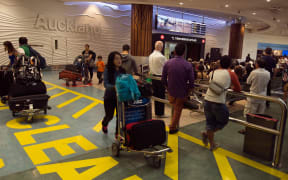Immigration New Zealand says a shake-up of senior management aims to forge new relations with businesses and focus on fraud and worker exploitation.

Photo: 123RF
But the industry watchdog says there is change fatigue after a series of policy upheavals and a restructure.
Twenty-two senior management roles are being axed and 40 more will be created at a cost of at least $4.5 million a year.

June Ranson Photo: Supplied
Association for Migration and Investment chair June Ranson said a new focus on communicating with sector bodies was welcome, but problems were not going to be fixed overnight.
"Immigration recognise that they cannot go forward in isolation," she said.
"They do need to have input from the practitioners, and that is commendable.
"That is a very good move forward but it really is putting all of that into practice."
However there was less faith in that implementation now, she said, given costly mistakes in the last restructure which saw global offices closed without enough staff to take over processing visa applications.
The new structure follows hot on the heels of that restructure - which left businesses, visitors and students waiting months for visas.
'Risk and fraud in the system'
Immigration New Zealand head Greg Patchell said the visa service was now being stabilised and waiting times were reducing.
The wider organisation had not changed for almost a decade, he said.
"It's important now to reflect the current operating environment which is different from nine years ago, with very low levels of unemployment across the country, lots of demand and as we've seen over the last few years in particular, quite a bit of risk and fraud in the system as well.
"So making sure that we balance both the need for employers to get people in as fast as they can - we know we have to do better there by the way - and secondly, the risk in the market."
The new management jobs were in addition to an extra 120 staff being recruited in visa services, he said.
But frontline workers were hard to find as INZ was recruiting in the same tight labour market other employers were facing.
The changes could help businesses and immigrants in industries such as horticulture, retail and hospitality, he added.
"We hope to be far more effective in terms of communicating the opportunities for those sectors, and also their obligations," he said.
"So the thinking is to actually put the capability in place, for example, a new information and education capability, which will be designed to assist employers and migrants to really navigate the system."
Immigration also knew it had to do better at forecasting visa volumes, he said.
A $54m Budget injection for immigration will also fund prevention work on mass arrivals by boat.
Immigration advisers said there were other changes transpiring behind the scenes, with new interpretations of legislation under pressure from government to bring down immigration numbers.
"They're trying to bring in other changes, which are not necessarily public knowledge, which once again can slow down the process of acceptance of applications, and processing," Ms Ranson said.
"So what I'm saying is that some of the things that are going on are not really efficiencies at all. And it's appeasing what the government is trying to achieve."
Immigrants found the changes bewildering, staff turnover was high and former immigration staff reported the need for a culture change, she added.
The new structure will come into force at the end of September.







